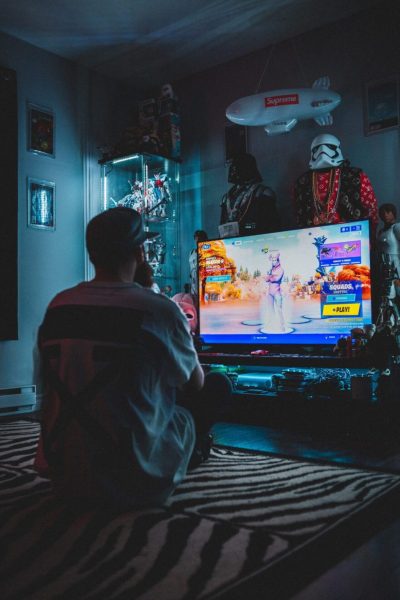
Massively multiplayer online role-playing game
Role-playing games are known as RPGs. In these games, the player has a science fiction or a fantasy character. MMORPG is an online video game of massive multiplayer that combines role-playing.
MMORPGs are played all over the world, hence the MMORPGs industry is worth billions of dollars. World of Warcraft (WoW) which was released in 2004 is one of the most popular games of all time.
Cast an eye over any MMO forum, Youtube comment section, or game-centric Reddit section, and you are quite likely to see people complaining about or defending the idea of grinding in video games. The definition of grinding is to “perform a repetitive task in order to gain gameplay advantages”. In short, repeatedly performing an action will increase your character stats to make him or her a more powerful adversary.
Some players refer to this as “treadmilling” or less often “pushing the bar”, mainly due to the similarities that grinding has with regular exercise. You go to the gym, you sprint on the running machine, you do some weights, perhaps some sit-ups, rinse, and repeat. In, for example, a fantasy MMO, you might mine some ore, or fight some bad guys to achieve the same results.
Rinse and repeat. Sound familiar? That is because a vast amount of games now include a significant amount of grinding, but is it really such a bad thing that to gain results, we have to work for it?
The early grind
Interestingly enough, grinding is not really a new thing. Although we associate this game facet with modern MMOs in particular, it really doesn’t differ too much from simply practicing at a game such as Super Mario Brothers on the NES, and becoming good enough to master that tricky level that has caused you so much anguish over your summer holiday. While you may not ‘level up’ in the same way you would expect in an MMO, you are still repeatedly trying to do something, until your skill level has improved enough to facilitate your progress.
Your ‘leveling up’ just happens to be noticeable in your physical skill, rather than in a number on a character stats screen. In essence, we have been grinding for years without even noticing it, and most of the time it has been good fun, mixed with a little frustration. The frustration isn’t a bad thing either, as waltzing through a game that is far too easy will irk players even more than one that is on the verge of being too difficult.

It is all about the balance
Getting the balance right with grinding is essential. Too much effort and too little reward is a recipe for boredom, and too much reward and too little work can lead to a game that lacks depth.
It’s a difficult tightrope to be walking for game companies, especially when certain game franchises are now expected to enjoy life spans that exceed half a decade. One slip in the direction of either extreme could result in an experience that doesn’t fulfill its potential as a good game or a money-spinner.
This is probably why grinding within gaming has remained relatively similar in its execution throughout the years. After all, why risk changing something that could sink the ship?
Work is always more fun as a team
MMOs in particular lean heavily on grinding as a form of character progression, and on the whole, it works very well. Stats-heavy games will always lend themselves to the grind more naturally than those are lighter in the stats department, and the social aspects associated with multiplayer games also allow for extended moments of grinding with less boredom.
Working as part of a team in games like WoW and The Elder Scrolls Online, the grinding becomes akin to a sort of fun version of work, where you feel compelled to put in the time to succeed, but don’t mind doing so, as some fun times are guaranteed along the way. In this respect, grinding has managed to succeed as a game facet where perhaps it really shouldn’t.
Doing something repetitively over and over simply to make gains in your stats really shouldn’t be fun, should it? But when multiplayer games do this, there seems to be a unique appeal that single-player games that are heavy on the grind simply can’t deliver.
To implement grinding well though, developers cannot simply rely on providing players with company while they blindly go through their ‘gaming chores’. A good game will include a grind that stimulates the player just as much during these repetitive phases as it does during the more narrative-driven segments. If a game manages to hide the grind, or at least blend its edges to the point where it is difficult to tell where the grind starts and ends, the game is already on the right path to success. Get this blend wrong, and players will see straight through these “game lengthening” techniques.
So what is the key to making sure that grinding in games is fun?
Well firstly, variety really helps here. Literally bashing the same button over and over as you slam your pickaxe into a rock, all in the hope of gaining a few numbers on a stats sheet is going to get very tiresome very quickly. Mixing up the results from the mining will, on the other hand, at least keep the player concentrating on the task at hand. A good example of how grinding can actually work well is Stardew Valley.
Stardew Valley, for those who have been living under a rock for the past couple of years, is a smash-hit indie title that took the world by storm back in 2016. As the sole beneficiary of your grandfather’s farm, you leave the city life behind you and head back to the country, for a life of farming, mining, and socializing with the locals.
While town life may be quite narrative-driven, the mining and farming aspects of the game are very grindy. Stardew Valley doesn’t fall into the aforementioned trap of becoming tedious though, as within the grinding there is plenty of variety. When farming, you may be required to plant and water your crops on a regular basis, but the way you do this is entirely up to you. You decide on the aesthetics of the farm, you decide on what crops are sown, and in what pattern. Yes, you may be repeating the same action, but ultimately it feels like it is your choice to do so, and rarely feels like a chore. The same can be said for the mining porting on the game. You decide where to mine, and the variety of rocks and ore available to discover keeps things fresh for the player.
Envy isn’t always a sin
No, they don’t have a crystal ball, and they aren’t going to be providing you with the winning lottery numbers any time soon, but they do give you a slight glimpse into the future. The future within the game, that is. You see, grinding is only really worth it if you have a slight idea of what the results could bring you.
Nobody wants to work hard if there is no light at the end of the tunnel, or the rewards might not be worth the effort. But, if you could only just see what the rewards could be at the end of the struggle, it might just be worth it.
There are, unfortunately, games that simply did not get the memo when it comes to grinding. These games tend to drag when playing, with little to no sign of a reward or reason to carry on. This would have previously been a death sentence to games released ten or fifteen years ago, but with constant updates now available to anyone with internet access, games can be rectified if needed.
‘Balancing’ in games has become something that is done throughout the life of a videogame, rather than finished before release and never revisited. Especially prevalent in first-person shooters, the first few months of a game’s life are now a time when game companies listen to complaints and adjust their games accordingly. Some players think that it is a cheap tactic to get games released before they are ready for prime time, but in reality, the first few months of a game’s release are extremely important for the publishers, and provide data that can help them decide whether changes are needed, and thus improving the game as a whole.
So just because a game doesn’t get it right immediately, it doesn’t necessarily mean that it won’t work out fine in the end. Game companies should take heart in this, as they now have a small window of opportunity to rectify issues post-release, something their predecessors would have loved to be privy to, no doubt.
A world without grinding could be a drag
For those of you who supposedly hate grinding, it is worth considering what the gaming world would look like without it. A game with little challenge and constant rewards is something that quickly becomes boring.
Anyone familiar with a parody game called PSTW (Press Space To Win) might have already considered the empty feeling a game with no challenge provides for a player. Perhaps it is an uncomfortable truth for you to consider, that mum and dad were right all along, and hard work really is a reward within itself.
Some players will reference a sort of ‘zen-like’ state that descends upon them while they are deep within a grind, and the sense of achievement they get from putting in the required hours leaves them with a genuine feeling of pride. When done correctly, grinding can add a huge amount of value to a game, and protect its relevance in the market for years to come.
When done badly, it can be the death knell of an otherwise pleasing experience. Games companies will need to be paying close attention in the coming years to players’ attitudes toward grinding, and if we start to tire of it, a new approach will be needed. But, to loop back to the start of this discussion, if grinding is implemented correctly in the first place, we shouldn’t even notice it at all.
So, as a rule of thumb, If the grind is varied, challenging, and fun, you are halfway to creating a great game. Gaming companies should ignore these facets at their peril.
